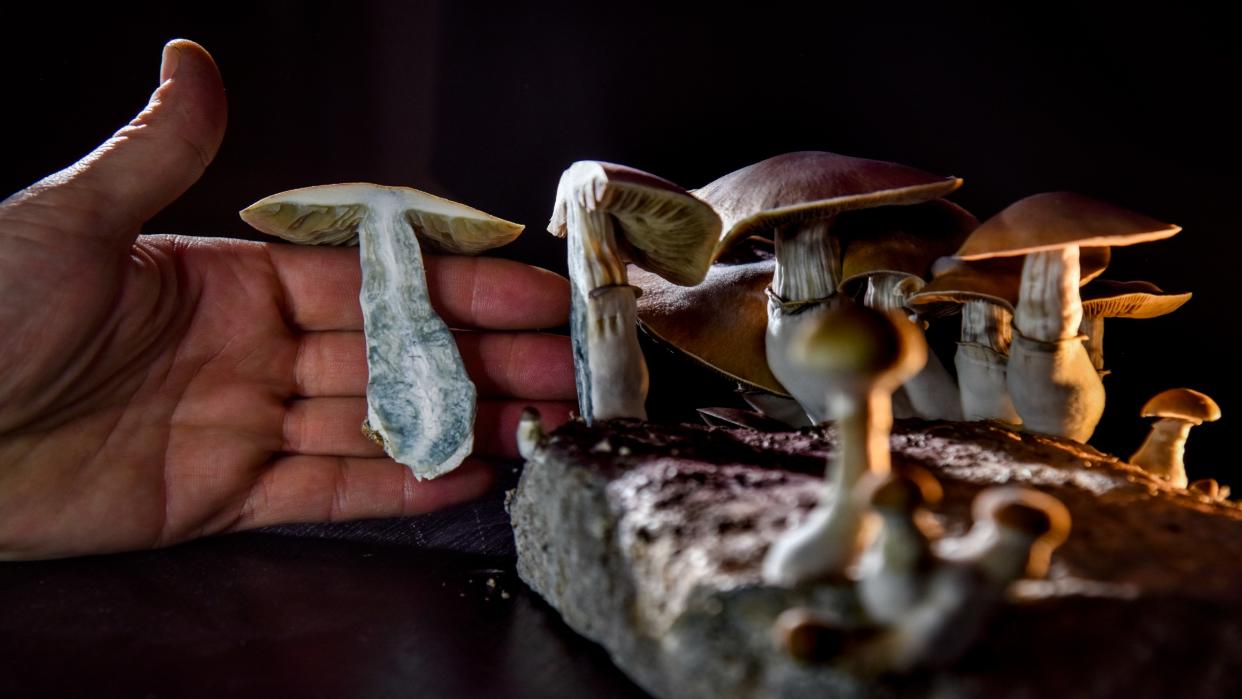Psychedelic psilocybin could treat anorexia in some patients, trial suggests

Psilocybin, the main psychoactive ingredient in magic mushrooms, could be a promising new treatment option for anorexia, early clinical tests have shown.
In a small trial, 10 women with the eating disorder received a single dose of psilocybin, while supported by a therapist, and tolerated the drug's short-term effects while not experiencing any serious side effects. Most patients reported a positive experience with the drug, reporting that their quality of life improved and that they felt more optimistic. Four participants had entered remission from their symptoms after three months.
The findings, published Monday (July 24) in the journal Nature Medicine, will need to be replicated in larger trials to confirm that psilocybin can effectively relieve anorexia's core symptoms, the study authors noted. However, with no currently approved medications for anorexia on the market, these initial results could signal hope for a new treatment option for this potentially deadly illness.
New treatments "urgently need to be developed," as anorexia nervosa "has the highest mortality of any psychiatric disorder and is notoriously costly and challenging to treat and recover from," Rebecca Park, an associate professor in the University of Oxford Department of Psychiatry who was not involved in the research, told Live Science in an email.
Related: 'Magic mushroom' compound creates a hyper-connected brain to treat depression
Anorexia nervosa is a serious mental illness in which people become obsessed with their body weight and image, restrict their food intake and sometimes exercise excessively to induce weight loss. The condition is notoriously difficult to treat, with half of patients hospitalized for the disorder experiencing relapse within a year of discharge. Despite affecting up to 4% of women and 0.3% of men — with cases among men likely being underestimated, as with other eating disorders — the condition has no approved medications available.
The hallucinogen psilocybin has already shown promise as a treatment for other mental health conditions, such as depression, alcohol use disorder and obsessive-compulsive disorder. It is believed to work by switching on receptors in the brain that normally react to the "feel-good" hormone serotonin — also called 5-HT2a— whose function can be reduced in patients with anorexia.
In this first-of-its-kind trial, scientists sought to determine whether psilocybin could be a safe and well-tolerated treatment for the disorder. They gave 10 women, ages 18 to 40, one 25-milligram dose of synthetic psilocybin while providing them with psychological support from trained therapists.
Following treatment, 90% of the group reported that they had a more positive outlook on life, with 80% rating the experience as one of their "top five most meaningful of life" and 70% feeling that their general quality of life improved. Although most participants reported these positive experiences, only four entered remission after three months, meaning their characteristic eating disorder symptoms, such as weight concerns, fell to baseline levels experienced by the general population.
So what might have driven this improvement in symptoms?
"While speculative," Dr. Walter Kaye, senior author and professor of psychiatry at the University of California, San Diego, told Live Science in an email, "it is possible that psilocybin administration may reverse altered serotonin function in anorexia nervosa and help patients develop a new perspective on their symptoms and behaviors."
RELATED STORIES
—Australia clears legal use of MDMA and psilocybin to treat PTSD and depression
—'Magic mushroom' compound may work just as well as antidepressants, small study finds
—Teens with anorexia may be 'dangerously ill' even if they are not underweight
The authors noted limitations of the study — namely, that it "lacked gender, racial and cultural diversity," as all 10 patients were women, and nine self-identified as "white." The exploratory study also lacked a control group of participants who took a placebo rather than psilocybin.
Although these are "important preliminary positive findings," Park stressed that psilocybin "remains an experimental treatment" and more data is needed before the psychedelic can be approved for use in anorexia.
Future research should include larger groups of patients and people whose symptoms vary in severity, as well as test different psilocybin dosages. Studies should also explore further how psilocybin may be helping to relieve eating disorder symptoms, she noted.

